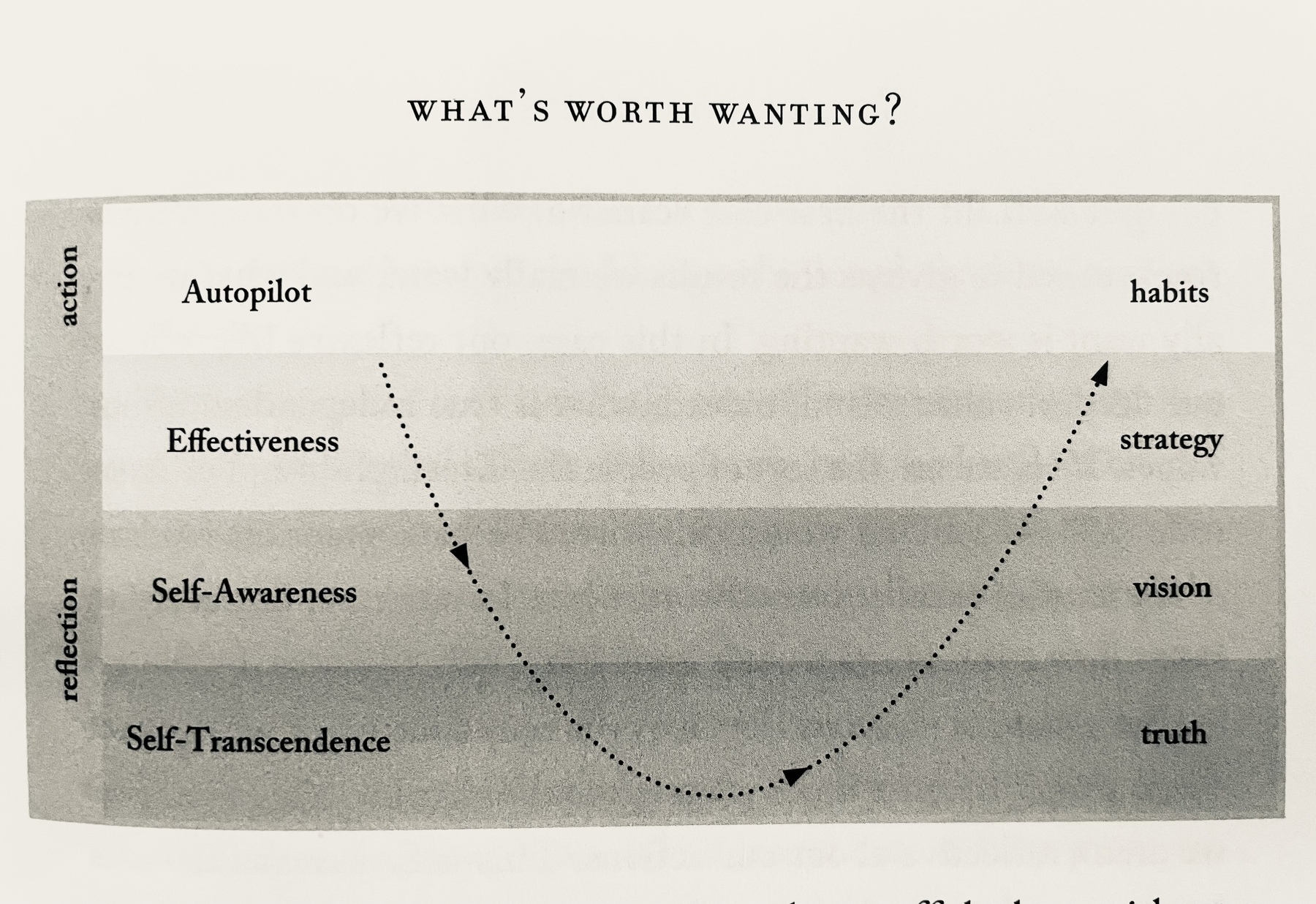Miroslav Volf et al in the new book, “Life Worth Living”—what’s worth wanting? Like a tour through midlife. But also useful for my students this fall.

Miroslav Volf et al in the new book, “Life Worth Living”—what’s worth wanting? Like a tour through midlife. But also useful for my students this fall.

@ablerism does the arrow mean that you (ideally) go all the way down to self-transcendence and then learn how to translate that all the way back up into habits?
@elliotlovegrove That’s certainly how I read it! The authors don’t actually explicate it in detail. Just thinking through it all…
@ablerism Thanks for the recommendation! I just borrowed “Life Worth Living” from my local ebook library, which fortunately dind’t have a waiting list for the book.
@chrisfoley Interested in what you think! Sometimes I wish these books didn’t adopt such an overtly folksy tone—but it’s no doubt hard to get accessible philosophy tuned just right.
@ablerism I thought that was a helpful graph, too. I binged on self-help books a while back and this was one of them. Even at 38, and having finished my bachelors at 34, I felt it was a little too broad and a little too college level for me. That’s okay and makes sense given the source, it just wasn’t very moving for me at this stage. That said, we listened to the conversations with Claire Danes, Kelly Corrigan, and Kate Bowler and, while they don’t discuss the book itself much, we liked the conversations it sparked. I’m guessing the authors are more than okay with that sort of thing 🤓
@tinyroofnail I get it. I listened to part of one of those conversations, and I was wishing they adhered to the text more, honestly. But again—hard to get these abstractions right.
@ablerism I’m also reading How To Be Perfect by Michael Schur, which addresses similar questions. And last year I spent several months reading Derek Parfit’s Reasons and Persons, one of the least folksy books on ethics you’re likely to find.
@ablerism I would definitely recommend Reasons and Persons. I struggled with it for three months last year (exactly the right way to engage with an important philosophical work!).
The first part of the book deals with ethics: the competing demands of self-interest, consequentialism, the needs of others, and their effects over time.
The part of the book that deals with the notion of a person and what it constitutes is the most mind-blowing - especially when dealing with what happens to consciousness when going through a transporter, Star Trek style, or doing split-brain experiments. i LOVE talking about this part of the book but I won’t bore you here.
@ablerism I saw their most recent title and thought for a second that you were the guest of honor
@ablerism Yale’s For the Life of the World. They had posted the Clair Danes et al conversations. Last week’s was titled “Reframing Disability: Agency, Possibility, and Radical Dependency” - Haven’t listened yet
@tinyroofnail Oh wow, yes! Glad to know if this—I go through periods of listening to that podcast a bunch, then forgetting. Thanks. (And I have yet to connect to so many theological themes, but hope to in coming years!)